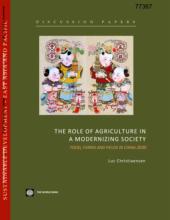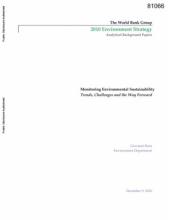Land Library
Welcome to the Land Portal Library. Explore our vast collection of open-access resources (over 74,000) including reports, journal articles, research papers, peer-reviewed publications, legal documents, videos and much more.
/ library resources
Showing items 1 through 9 of 14.Despite myriad challenges, Kenya has emerged in recent years as one of Africa’s frontier economies, with headline growth in the most recent decade propelling the country toward middle-income status.
Vietnam's rapid and sustained economic growth and poverty reduction in the last two decades benefitted from the policy and legal reforms embodied in the Land Laws of 1987, 1993 and 2003 and subsequent related legal acts. This note outlines reforms related to four main themes.
China's success in addressing food problems after adopting the reforms in 1978 has been nothing less than remarkable. Grain output (rice, wheat and maize) has almost doubled and most hunger has been eliminated.
Mozambique, the only Lusophone country covered in the agribusiness indicators initiative, has had a turbulent history since independence.
The Malaysian economy decelerated as solid domestic demand was not sufficient to offset a weakening external environment. Private consumption growth continued at a healthy pace.
Reforestation measures for degraded lands, strategies for the sustainable management of forest resources, and agroforestry practices that incorporate trees into farming systems are increasingly demonstrating their promise for producing commercialized tree products.
This report presents a concise review of the major environmental and natural resources issues at the global and national level over the coming two decades.
Amid heightened global uncertainties, Russia is experiencing a bumpy recovery. Domestic demand is rising, but unemployment remains high, and credit and investment remain limited. The budget has benefited from higher oil prices, but fiscal consolidation remains important in the medium term.
The Country Environmental Analysis (CEA) for Timor-Leste identifies environmental priorities through a systematic review of environmental issues in natural resources management and environmental health in the context of the country's economic development and environmental institutions.









